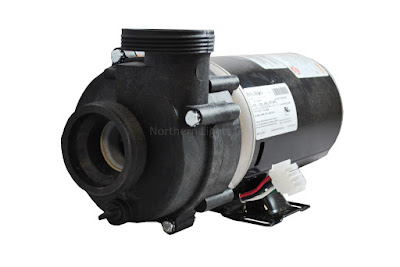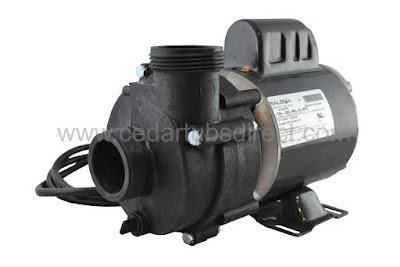A
hot tub spa at home is an amazing space for socialization,
low-impactful exercise sessions and ultimate relaxation. If you want
your hub and spa function perfectly, this depends on complex spa pumps
and electrical system. This system offers you heating, jets, lighting
and filtration.
However,
a pump is considered as one of the most important components of a spa.
When you use spa pump for long, it becomes damaged or glitch. As a
result, it can greatly impact on the most fundamental spa system tasks.
While some damages require replacement of spa pumps;
many issues need complete change of spa plumbing system. Please check
out this post on the useful signs to know for the replacement of spa
pumps:
Useful Signs to Consider for Spa Pump Replacement
1. Unusual sounds –
One
of the most important signs of a worn or an ageing pump is the change
in its sound. While enjoying a spa session, you should check out whether
there’s some unusual sound that comes from your spa. You need to know
whether the noise increases or changes suddenly.
If
you get humming noises without any water flow, it indicates electrical
faults or pump seizure. While running, spa pump makes rumbling or
squealing noises.
2. Reduced water pressure –
The
main function of a pump is to force water to flow in the preferred
direction to produce a specific effect like high pressure jets. If you
may notice less water pressure, you should know that your spa pumps may
become inefficient.
However,
you need to check your pump thoroughly for any debris prior to the
replacement. The debris particles may block the impeller and impact on
the movement of water. If you don’t find any debris in it, the less
water pressure stems from damage or wear and tear to the spa pumps.
3. Failure in pump or motor function –
If
you switch on the pump, but nothing happens, it may be an issue with a
pump or a controller. The faults in the electrical system should be
fixed by a professional electrician. Sometimes if the motor starts
running but there’s no flow of water, there may be air trapped inside
the pump casing or the pipe work. It will be possible, especially when
you have refilled or drained your spa recently.
If
you are unable to operate the pump or motor or an internal electrical,
pump or motor faults appear within, it’s better to have a qualified spa
professional to assess the issues effortlessly. Otherwise, you should
consider buying spa pumps, if you really want your hot tub and spa to be
in top working condition.
4. Water leakage –
Your
hot tub spa depends more on a spa plumbing system. Unfortunately when
it becomes damaged, it may not work properly. If water starts leaking
from your pump or the pipe-work, it can lead to failure in your pump.
Again
if you find water leaking around your pump, shut down all of your
equipment ensuring electrical safety. Therefore, it’s highly suggested
to check your pump and pipework to know the source of leaks and fix the
issues as soon as possible in order to avoid any kind of failure.
5. Air sucking –
Moreover,
the main aim of a pool pump is to suck water as air has less mass. This
means, air moves quicker than water. If there’s a small leak in your
pump system on the suction side, it will allow the pump to suck air
instead of water and the performance of water will be minimized
significantly.
After
all, leaks in spa pumps are common; but they’re not a big deal unless
you’re given them the opportunity to grow more. Generally, leaks occur
between pump and motor or fittings and valves present on the suction
side. If you are looking for an easy way to find the mechanical seal
leaks in the pump, please check under the pump for moisture when the
pump is operating.
Bottom Line –
Are you looking for immediate help with your spa pumps or spa plumbing systems? If yes, it’s wise to count on Cedar Tubs Direct.
We have the best selection of hot tub spas and accessories including
single speed Balboa spa pumps ensuring optimal efficiency, performance
and durability. For more information, please visit our website.




No comments:
Post a Comment